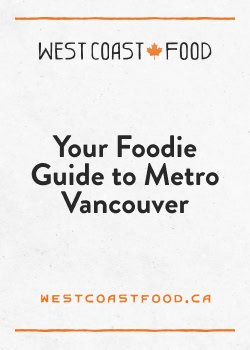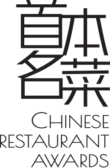By Penny Watson
Thanks to waves of emigration through history, the ancient gastronomy of China, in its many and varied forms, has hitchhiked its way across the globe. Here are six cities, where ma po tofu, gong bao chicken and dan dan noodles form part of the culinary landscape.
Vancouver
Locals like to say they have the best Chinese food outside China. And well they might. Twenty per cent of the city’s population is ethnic Chinese who mostly grew up in Hong Kong, Taiwan and mainland China. The Chinese enclave of Richmond is a hotbed of culinary authenticity with the spectrum of cuisines reading like a map of China. To prove it, this year’s Chinese restaurant awards (www.chineserestaurantawards.com) gave accolades to Legendary Noodles (www.legendarynoodle.ca) for best Northern Chinese; Golden Szechuan (3631 Number 3 Rd, Richmond) for best Sichuan and Alvin Garden (4850 Imperial St, Burnaby) for best Hunnanese. In downtown Vancouver, Bao Bei Chinese Brasserie (www.bao-bei.ca) takes the taro cake for cool. Its menu boasts a contemporary twist on dishes from Sichuan province, Taiwan and Shanghai. Kick Ass Fried Rice anyone?
Hong Kong
Hong Kong’s proximity to southern China means Cantonese cuisine is not only king, it’s cool. At Mott 32 (www.mott32.com) guests sitting in an extravagantly renovated old bank vault are served luxe dumplings filled with quail egg, truffle and the like. At Ho Lee Fook (www.holeefookhk.tumblr.com), in a Soho basement, new takes on cha cha tang (street food) include wagyu Chinese short ribs with jalapeno puree, for example. Mom-and-pop favourites are easy to find. Tsim Chai Kee (99 Wellington St, Central) has a cracking fish ball and wonton noodle soup, and dim sum stalwart Tim Ho Wan (2-8 Wharf Rd, North Point) still rides its “cheapest Michelin star meal” reputation. A chef’s table at Bo innovation (www.boinnovation.com) with Alvin Leung at the helm is culinary gold (leaf) or go traditional at Fook Lam Moon (www.fooklammoon-grp.com) where abalone, bird’s nest and shark fin still reign.
San Francisco
San Francisco has the highest population of Chinese descendants of any American city. The majority are from China’s Guangdong province and Hong Kong (i.e. Southern China) so there’s little wonder Cantonese restaurant R&G Lounge (www.rnglounge.com) and its salt and pepper crab is crazy popular. Another stayer, with xia long bao to rival the mother country, is Yank Sing (www.yanksing.com), a 250-seat “deem sum” restaurant that spills into an office building atrium come the weekend. It’s owned by the Chan family and is old school with bow-tied staff wheeling around trolleys stacked with bamboo steamers. For fine dining with prices to impress the in-laws, three-Michelin star restaurant Benu (www.benusf.com) has an East meets West philosophy using iconic ingredients such as 1000-year-egg and abalone in deliciously modern ways.
Shanghai
We’re not being cute here. China is, of course, the best place to eat Chinese food, but we’re singling out Shanghai for its pedigree of old favourites mixed with contemporary experiences. For the former get a local fix of soup dumplings at Jia Jia Tang Bao (90 Huanghe Rd, Huangpu), braised pork at Jian Guo 328 (328 Jiangguo Xi Lu, near Xiangyang Nan Lu, Xuhui district) and hairy crab at Chenghuang Miao Tese Xiaochi (518 Jiashan Lu, near Zhaojiabang Lu). For a fine dining experience, Fu He Hui (1037 Yuyuan Road, Changning District), in a three-storey townhouse, is dedicated to vegetarianism with an eight-course menu including traditional Asian ingredients such as taro and lotus seeds. More casual is Lost Heaven (www.lostheaven.com.cn), a Yunnanese restaurant elaborately decorated in Buddhist and Tibetan trinkets and materials. The cuisine – crisp wild-weed vegetable cakes and Dali-style chilli chicken – spans ingredients found on the old tea-and-horse trail through Yunnan, Burma and Thailand to Tibet.
Singapore
Various dialects – Cantonese, Hokkien, Teochew, and Hainan – make up the Chinese ethnic group in the Lion city and their influences have inspired hundreds of eateries. It’s a good sign when you have to pre-order your smoked Peking duck as you do at Min Jiang at One North (www.goodwoodparkhotel.com), a two-storey black and white bungalow with chinoiserie interior, teak furnishings and outdoor deck. (The duck is served with eight condiments). Royal China, in the famed Raffles Hotel shopping mall, gets thumbs up for dim sum specialties including char siew sou, custard bun, and har gau, while Imperial Treasure (www.imperialtreasure.com) has a similarly good rep for classic Chinese such as steamed bamboo clams, sweet and sour pork and boiled soups. Visitors to the city might not have an eye for it, but shopping mall staples Lei Garden (www.leigarden.hk) and Crystal Jade (www.crystaljade.com) are highly regarded for fuss-free authenticity.
Melbourne
Of all Australian cities, the Victorian capital boasts the largest population of Chinese descendants, a stat that happily equates to lots of chowing down on Chinese. In the city, 40-year-old Cantonese favourite Flower Drum (www.flowerdrum.melbourne) delivers top-notch Peking duck pancakes while Ruyi’s (www.ruyi.com.au) reinterpretations of regional favourites include ‘Peking duck cone’ and ‘Szechuan eggplant fries’. Cheap and cheerful Chinatown haunts like bustling Shanghai Village (112 Little Bourke St) and homey ShandongMama’s (facebook.com/shandongmama) know their dumplings, but perhaps not as well as new kid Din Tai Fung (www.dintaifungaustralia.com.au), a Taiwanese chain gone global for good reason. The suburbs get a look-in too. Dainty Sichuan (www.daintysichuan.com) has four outposts for fiery, chilli-laden feasts; David’s (www.davidsrestaurant.com.au) does refined Shanghai yum cha; or go hawker style with Kitchen Republik’s (1 Main Street, Box Hill) Taiwan fare.
Penny Watson is the author of Hong Kong Precincts, published by Hardie Grant books (www.theprecincts.com).






